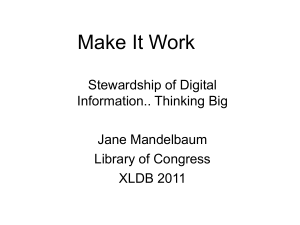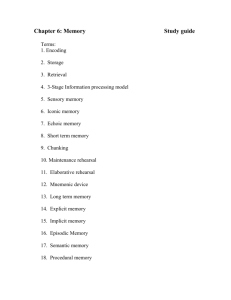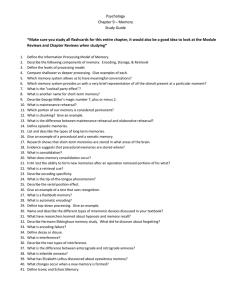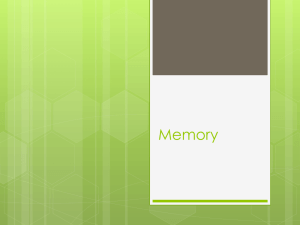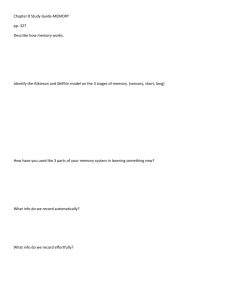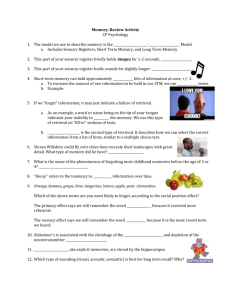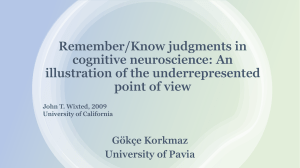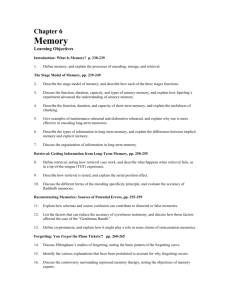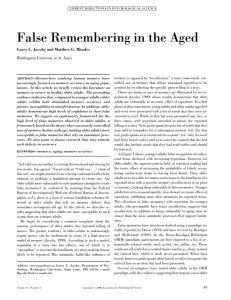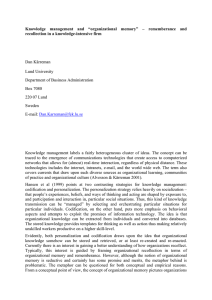MEMORY THROUGH THE AGES Prescientific approaches Ancient gods for memory
advertisement
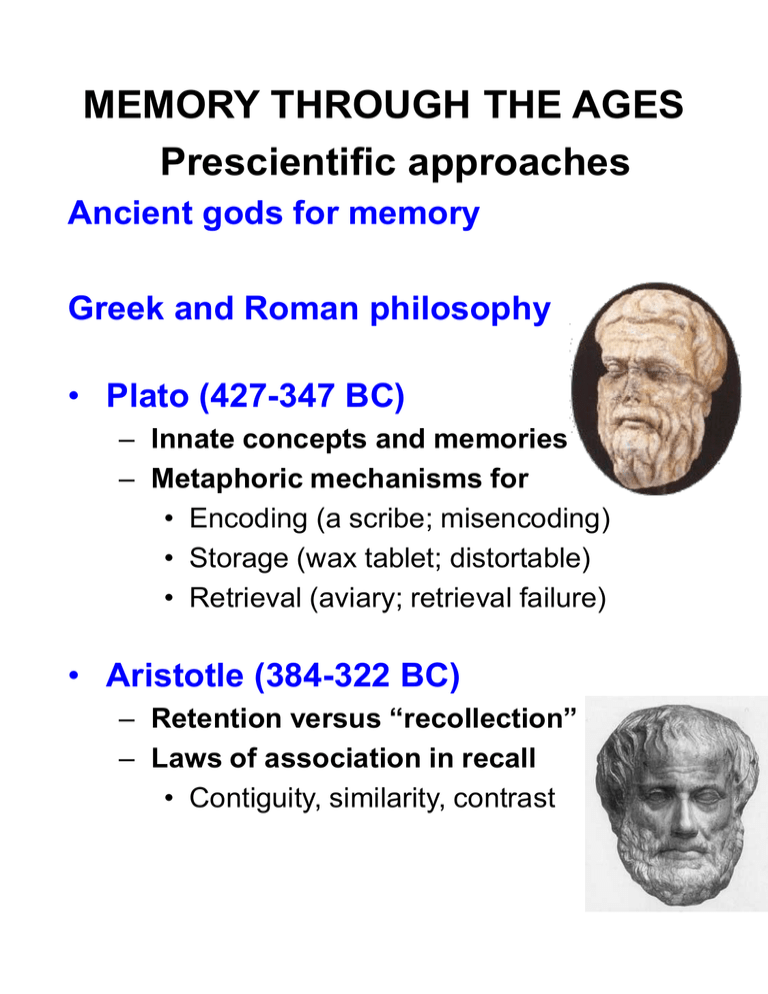
MEMORY THROUGH THE AGES Prescientific approaches Ancient gods for memory Greek and Roman philosophy • Plato (427-347 BC) – Innate concepts and memories – Metaphoric mechanisms for • Encoding (a scribe; misencoding) • Storage (wax tablet; distortable) • Retrieval (aviary; retrieval failure) • Aristotle (384-322 BC) – Retention versus “recollection” – Laws of association in recall • Contiguity, similarity, contrast Aristotle’s On Memory and Reminiscence • Memory vs. recollection – Memory is necessary, not sufficient for recollection – Recollection a form of inference (attribution?) placing ourselves in a certain time and space – Some phrases sound like implicit/explicit, some availability/accessibility • Recollection and association – Retrieval as “movement” between related memories – Associative “laws” (contiguity, similarity) – Automatic cuing vs. effortful search • Interesting comments about: – – – – – – Rehearsal and practice Concrete vs. abstract “codes” Role of the “substrate” (hard/soft walls) Recollection may be in error Arousal hurts memory Dwarfs have lousy memory Prescientific approaches (cont’d) • Cicero (106-43 BC) – Practical aspects of memory – “method of loci” for remembering order • Augustine (354-430 AD) – Sensory vs. ‘intellectual” memories – Active nature of remembering – Potential for “false memories” – Importance of emotion in memory The Renaissance: Empirical observation • Juan Luis Vives (1492-1540) – – – – – Spanish humanist/empiricist “Three Books on the Soul of Life” (1538) Importance of rehearsal for retention Utility of “memory exercise” and practice Three sources of forgetting • “image’ is erased or destroyed • Smeared or fragmented • Or “escapes our search” • Francis Bacon (1561-1626) – – – – British philosopher/humanist Describes the “inductive method” Basic skills of memory, fancy, reason Mnemonic strategies • Visual imagery • Study prior to sleeping • Varied encoding • Selective memory search (“prenotion”) British Empricism and Continental Nativism • Thomas Hobbes (1588-1679) – Memory as “decaying sensations” – Knowledge results from experience – Founds British empiricist tradition (Locke, Hume, Hartley, Mill) • Rene Descartes (1596-1650) – Mental laws vs. physical (dualism) – Importance of innate concepts and processes
